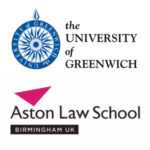Continue reading "Proprietary estoppel: Widening the net"
Proprietary estoppel: Widening the net

A father made repeated promises to his son that he would inherit an undefined part of a farm, sufficient to enable him to operate a viable farming business on it, after the death of his parents. Relying on that promise, the son spent the best part of his working life on the farm, working at very low wages and accommodated in a farm cottage. After a deterioration in the relationship between the father and son, it proved no longer possible for the two to work together, and the son therefore moved out, and the father cut him out of his will.
The son claimed an interest in the farm as...

Continue reading "Proprietary estoppel: Widening the net"
The claimants occupied land at Falmouth in Cornwall (the property) initially pursuant to a written agreement for the grant of a 15-year lease from 1 January 1993 at a rent of £400 per annum. The agreement was never signed by the defendant’s parents, who were then the freehold owners, with the result that it did not qualify as a valid agreement for the grant of a tenancy of 15 years, due to failure to comply with the requirements of s2 of the Law of Property (Miscellaneous Provisions) Act 1989. After the expiry of the 15-year period, the claimants continued to pay, and the defendant to ac...
This claim concerned a property. The freehold had belonged legally and beneficially to J who had run a business of a pub and restaurant from the property in partnership with her husband B. J died in 1997. On her death the property passed by her will to her executors and trustees, essentially for the benefit of B for his life and, subject to B’s interest, for J’s three children in equal shares (the will trust).
The claimants were the current trustees of the will trust and hence the legal owners of the freehold of the property. The first defendant was J’s son (one of the beneficiari...